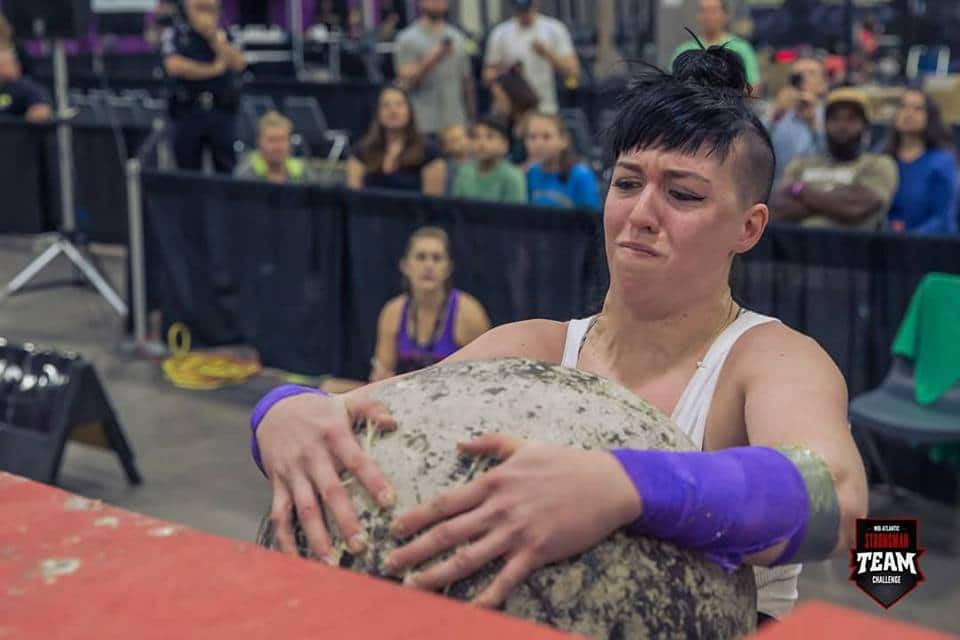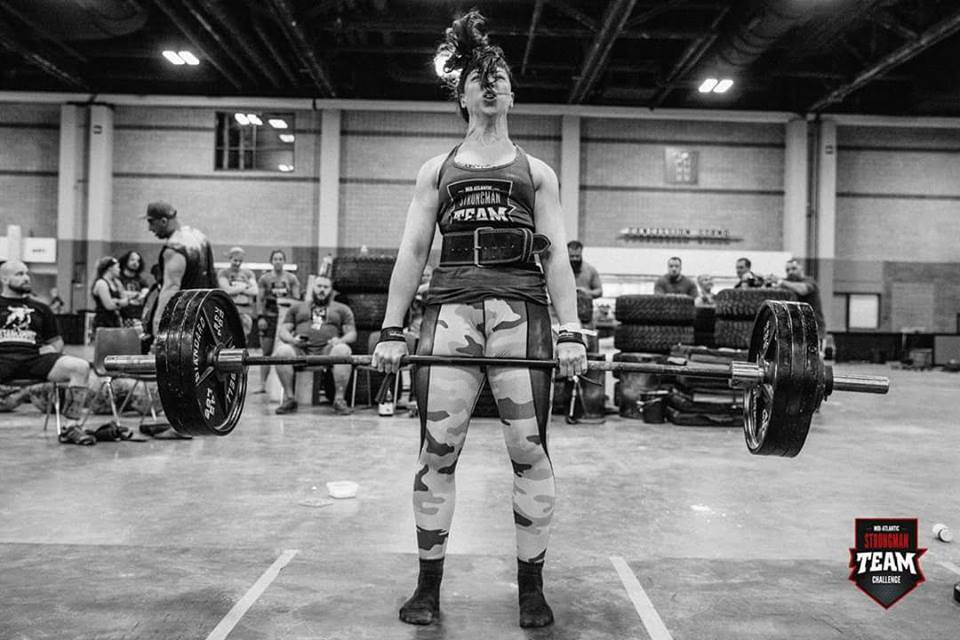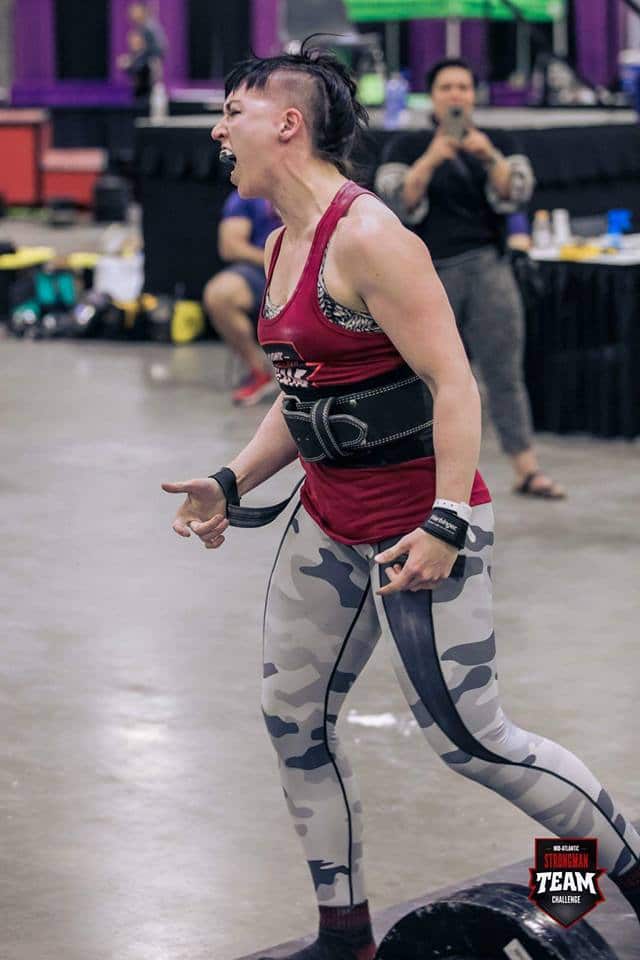“You just haven’t been training long enough, don’t sweat it,”
My boyfriend Mark said this me once when I was somewhat tearfully lamenting what I perceived as a stall in my overall progress.
For a second I was taken aback – I train 4-5 days consistently, and have been doing so for about 3 ½ years. (Cue experienced lifters chuckling.)
3 ½ years is nothing. Especially if before you started lifting you suffered a distinct lack of ANY kind of fitness habits.
What Mark meant was that my total training history was so relatively short that I don’t appreciate how long it actually takes to get good and make progress and thus am needlessly getting upset. I needed perspective. It can be tricky to maintain perspective of your own training, especially if you’re used to working alone.

Mark is not a strength athlete, he is a martial arts athlete, but he has been in the weight room, on the track/field and in the ring for about 2 decades. He has a been a competitive fighter since he was 14. He has experienced more physical training discomfort and setbacks than I have clocked total gym time, by a LOT.
So this article is for the growing number of formerly un-athletic iron sport newbies like me who need a little perspective. For many of us, lifting is the first physically challenging thing that we felt at home doing, and thus our introduction to sports and competition in general. How great for us that we have finally felt comfortable in physical discipline and are no longer being held back because we felt like awkward nerds.
https://www.instagram.com/p/BRB8BEyAZM7/
But something that took a while to sink in for me is that not only does it take a long time to get REALLY strong, but it takes time to get FIT, and my background of sedentary vices means I have a lot more work to do. And the more experience you get as a lifter and the stronger you get, the more generally fit you need to be to optimally recover and keep improving.
How Long Does It Take To Be Great?
We’ve all heard Malcolm Gladwell’s 10,000 hours to mastery theory. Now not everyone wants to be a literal master of their sport, but we all want to be good for ourselves and we all want to make continual progress, or we wouldn’t be doing it.
I’m going to use Gladwell’s theory and apply it to strength sports, to calculate roughly how long it would take to get good. Note, this is not remotely scientific, it is simply to offer a perspective on a rough hypothetical question: the question being “how long does it take?”
Again, this is just to give you, or the beginner or mentor of said beginner, a reminder of what the progress calendar can look like.
While it might not take 10,000 hours, let’s assume 7,000 hrs for technical proficiency, skill, and general maximizing of our own potential.
Now, we can’t lift 6 hours every day to speed our way to mastery. Most people don’t have that kinda time and also strength simply doesn’t build quickly. The stronger you get, the more stressful your lifting literally becomes to your body because you’re lifting heavier weights, and the more recovery you need. Very strong and experienced lifters intelligently prepping for a competition are likely not going to waste energy doing tons of extra exercises.
Basically, even if you COULD lift 6 hours a day, it wouldn’t make you get stronger faster.
So I’ll use a generous estimation of my own training history to calculate where I am on the road to 7000 hours of Kinda – Mastery.
An aggressive training schedule for me is 4-5 training sessions a week of varying intensity. Let’s say 5 sessions with an average length of 1.5 hours.
Let’s say I keep up that pace uninterrupted every month of every year.
7.5 hrs a week
52 weeks in a year
360 hrs a year
I’ve been consistently training for about 3.5 years.
That’s 1,365 hours.
Toward 7,000.
At that rate, it’s going to take me about 20 YEARS to get to 7,000 hours.
Let’s also GENEROUSLY assume that on average I spend a minimum of 5 hours a week of hauling weights around (I’m a personal trainer) and visualizing/imagination work and that those hours count to my total training hours.
So 5 + 7.5
× 52
= 600 hrs
× 3.5 yrs
Still only equals 2,275 hours for me so far, barely ⅓ of the way to my not quite personal best.
That’s solid work, don’t get me wrong! But in strength sports, I’m more like a novice intermediate.
We want to be the best we can be, and it’s easy to compare ourselves to OTHER people’s progress – a surefire way to start feeling like shit about your progress. Comparison is a natural and normal thing to do, but we have to be mindful of it.
The average lifter you’re admiring on Instagram has a totally unique training history. And so do you.
https://www.instagram.com/p/BPOqHmdAuOv/
Your Training History (Or Lack Thereof) Matters
Your history matters.
When it comes to general fitness, we might also consider including NEGATIVE “hours” – the hours spent hurting ourselves. And this is where we can remind ourselves to be kind to ourselves when playing comparison games.
I played some different sports as a kid, soccer, softball, snowboarding horseback riding. All tons of fun and I was really active as a young child. Unfortunately, I basically stopped exerting myself after puberty. Then in college I started heavy drinking and smoking (cause i was such a badass rebel and it’s soooo cool to smoke when you’re asthmatic). This lasted for about 5-6 years.
I likely did serious damage to my athletic potential and it will probably take a considerable amount of time to counteract that damage.
Now this is not an excuse to not work hard – if anything it means that now I have to work that much harder to make equitable or even slower gains to someone of more athletic and physically healthy background. Physical damage incurred through destructive behaviors is writing checks your body can’t cash, and when you start aggressively competing, you have suddenly have a lot of “bills” to pay.
While I was in the throes of my worst habits, if I had at least been marginally more active in a productive way and eaten somewhat better, I may have mitigated the negative effects of my bad habits.
But alas, that’s the negative feedback loop of destructive behavior. I’ll never know. But I know what I’m working from and toward.
Now that is NOT to say that I will forever be training in the shadow of my old habits – I have come a long way and continue to progress, but it’s a physical reality that I have to take into consideration when looking at my training history in full scope.
It’s Okay to Be New (And Maybe New Means “Out of Shape”)
So if you, like more and more people everyday, are discovering strength sports as the first physically demanding thing that YOU LIKE DOING and feel you can progress in, you need to keep in mind that your road is barely beginning. And your UNIQUE progress will be affected by your physical history.
So don’t be discouraged if you are only a few years or months into your iron sport of choice and you’re feeling weak, out of shape, and like a beginner. Because in many ways, you ARE.
And that’s okay.
It might take a long time. It might (and likely will) take a long time to build appreciable muscle mass (especially if you’re a woman). It might take a long time to improve your overall physical fitness, on top of getting stronger and more technically skilled at your sport.
You’re going to sweat and feel like crap and “wanna die” a few hundred or a few thousand times before you even scratch the surface of what you’re capable of.
General Fitness May be the Missing Component
It’s no surprise that strength sports can be super hard on the body, sometimes downright dangerous, in degrees.
The first few years or so of lifting is often referred to as “newbie gains” – this is because once you have gotten a base layer of strength, you have to incur more and more stress to make your body adapt.
For those of us with less athletic backgrounds, this where our training and physical history may start to show itself more.
Your OVERALL fitness will play a role in how well you can recover from the stress of strength training. And remember that general fitness and aerobic capability affects how well you can recover. The better shape your heart and lungs are in, the better you will recover from training, so the longer you lift, the more attention you will have to pay to your overall conditioning, not less.
There are many variables at play here, and Alex Viada is one of the experts on this. It’s also important to take into consideration what types of conditioning will be most beneficial to your training style. However you train, your baseline aerobic fitness is an important factor to pay attention to.
It Really Is About the Journey
Mastery of a sport or physical discipline, I have come to believe, is one of the greatest things we can do for our personal development. It is in pushing our limits physically that we can push ourselves mentally (And maybe even spiritually) in totally unique ways.
Let this new journey of physical upset teach you about yourself. That’s one of the truly enriching things about training. You are given the opportunities to continuously rewrite the story of yourself.
You will do things you never thought you could do – and realize you can be and do more than you ever thought you could.
Just keep going. And do your cardio.
Photos courtesy of Scott Lloyd Fitness Photography
Editors note: This article is an op-ed. The views expressed herein are the authors and don’t necessarily reflect the views of BarBend. Claims, assertions, opinions, and quotes have been sourced exclusively by the author.

